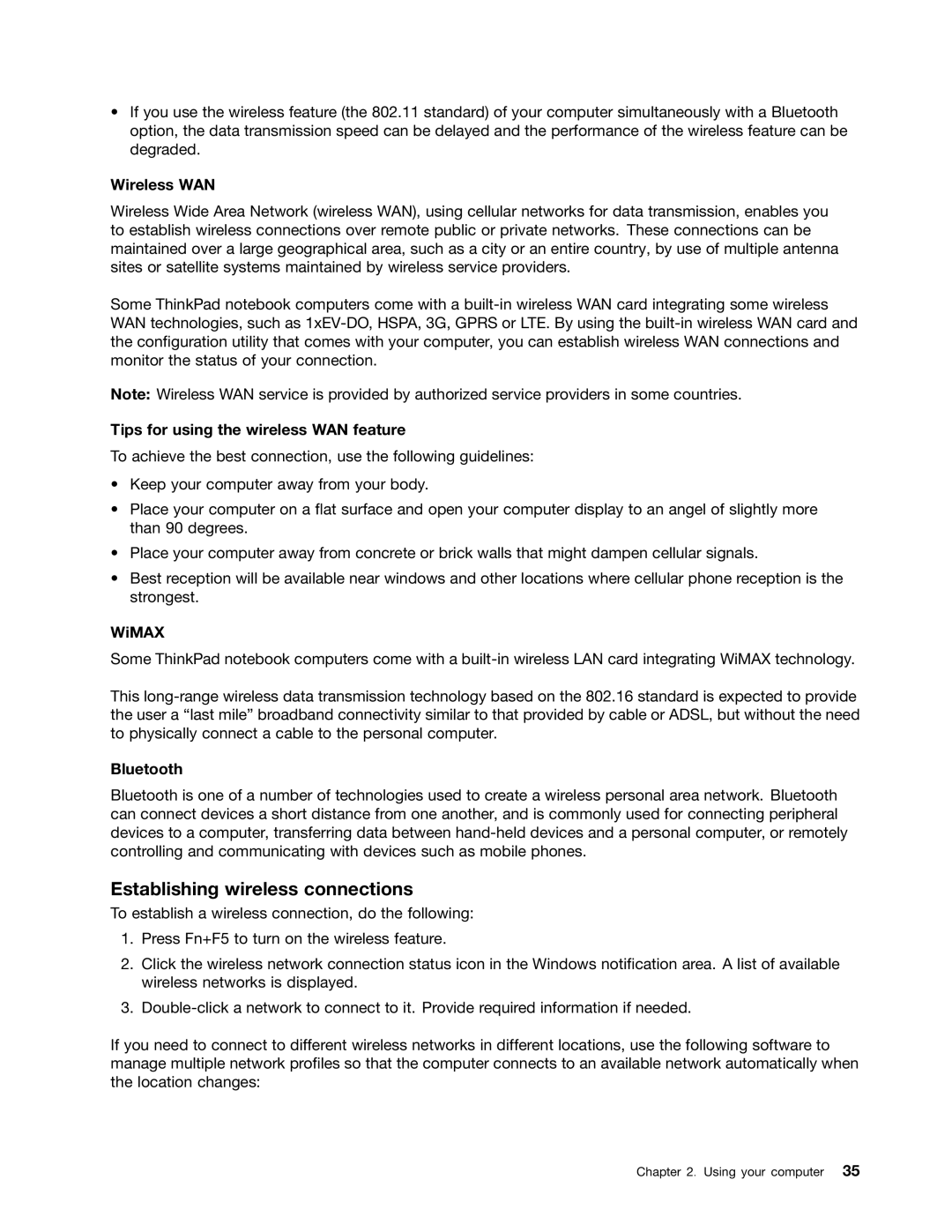•If you use the wireless feature (the 802.11 standard) of your computer simultaneously with a Bluetooth option, the data transmission speed can be delayed and the performance of the wireless feature can be degraded.
Wireless WAN
Wireless Wide Area Network (wireless WAN), using cellular networks for data transmission, enables you to establish wireless connections over remote public or private networks. These connections can be maintained over a large geographical area, such as a city or an entire country, by use of multiple antenna sites or satellite systems maintained by wireless service providers.
Some ThinkPad notebook computers come with a
Note: Wireless WAN service is provided by authorized service providers in some countries.
Tips for using the wireless WAN feature
To achieve the best connection, use the following guidelines:
•Keep your computer away from your body.
•Place your computer on a flat surface and open your computer display to an angel of slightly more than 90 degrees.
•Place your computer away from concrete or brick walls that might dampen cellular signals.
•Best reception will be available near windows and other locations where cellular phone reception is the strongest.
WiMAX
Some ThinkPad notebook computers come with a
This
Bluetooth
Bluetooth is one of a number of technologies used to create a wireless personal area network. Bluetooth can connect devices a short distance from one another, and is commonly used for connecting peripheral devices to a computer, transferring data between
Establishing wireless connections
To establish a wireless connection, do the following:
1.Press Fn+F5 to turn on the wireless feature.
2.Click the wireless network connection status icon in the Windows notification area. A list of available wireless networks is displayed.
3.
If you need to connect to different wireless networks in different locations, use the following software to manage multiple network profiles so that the computer connects to an available network automatically when the location changes:
